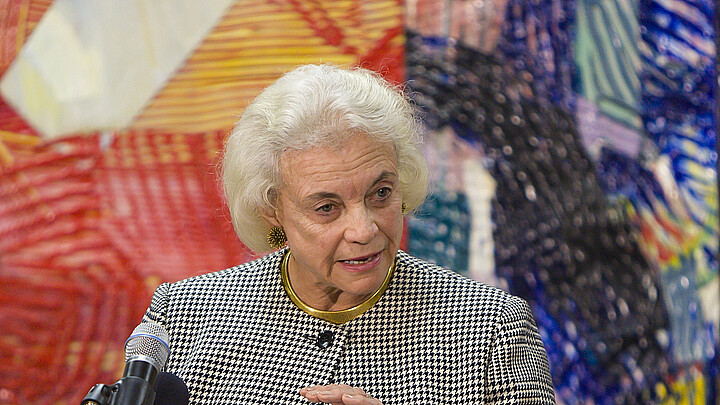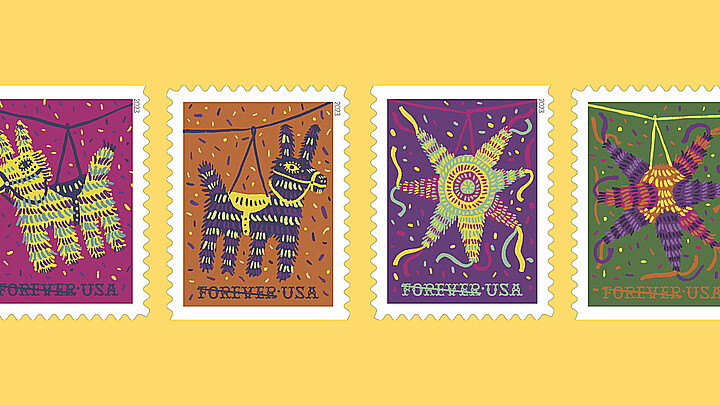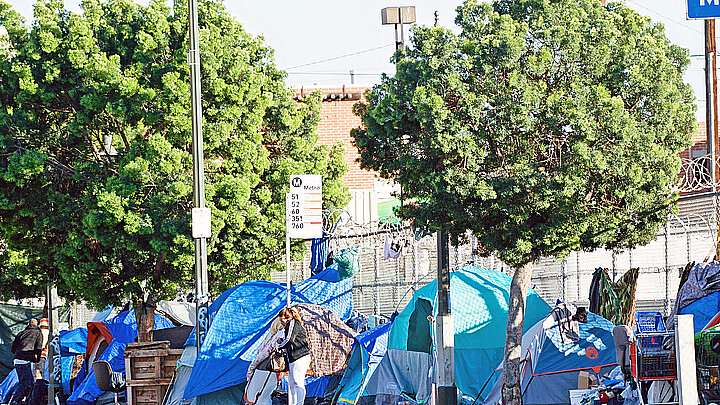Culture
Tribal law scholars resist idea to use Native American reservations as abortion clinic safe havens
The idea went viral with Sen. Elizabeth Warren (D-Mass.) and Rep. Alexandria Ocasio-Cortez (D-N.Y.) calling on the White House to open up federal land and resources to provide reproductive health services, but tribal law scholars have nixed the idea, saying it is inconsistent with the legal, cultural and moral thinking of most Native Americans.
July 2, 2022 10:13am
Updated: July 2, 2022 2:20pm
Tribal law scholars have nixed the idea of setting up abortion clinics on tribal land to circumvent federal and state laws following the Supreme Court’s recent decision, which overturned the Court's 1973 ruling in Roe v. Wade.
Oklahoma Gov. Kevin Stitt, a Republican who is also a citizen of the Cherokee Nation of Oklahoma, raised alarm bells last month when he told Fox News there was a possibility that Indigenous tribes may attempt to circumvent its abortion ban – now one of the toughest in the U.S.
“You know, the tribes in Oklahoma are super liberal,” Stitt said in an appearance shortly after the draft opinion overturning Roe v. Wade leaked. “They go to Washington, D.C. They talk to President (Joe) Biden at the White House. They kind of adopt those strategies.”
The idea went viral on social media and the press, with Sen. Elizabeth Warren (D-Mass.) and Rep. Alexandria Ocasio-Cortez (D-N.Y.) calling on the White House to open up federal land and resources to provide reproductive health services.
However, Indigenous tribes and legal scholars who focus on tribal law issues have been chilly toward the idea, seeing it as a legal impossibility and inconsistent with tribal cultural values.
Principal Chief Chuck Hoskin Jr. of the Cherokee Nation of Oklahoma said in a statement to Native News Online that “Cherokee citizens hold a range of views on this subject. Now is not the time for politicians or candidates for office to use the issue to demonize Tribes and drive a wedge between citizens in order to attack Tribal sovereignty.”
In an interview with Axios, Cochiti Pueblo tribe member Lauren van Schilfgaarde who also serves as the director of UCLA Law School's tribal legal development clinic said, “We have an arc of historic oppression that's really undermined a tribal ability to respond, and so the idea that tribes have some magic balm, it's just frustrating.”
Other Native Americans in the world of legal academia agreed.
“Any time there's a call for tribes to do something that is not originating in their own thought processes, it very much just reeks of further colonization,” Stacy Leeds, law professor at the Sandra day O’Connor College of Law at Arizona State University and member of the Cherokee Nation, told Voice of America. “You know, the outsider trying to tell a local tribal government what their law and policy ought to be.”
Robert Miller, also a professor at the Sandra Day O’ Connor College of Law who is an expert in federal Indian law, told The Arizona Republic that even if there was a legal way to make reservations accessible abortions for non-tribal members, many tribes would have objections.
“The first question would be, is this even practical? Is there any tribal government that would want to take this on?” Miller said.
“The history of some tribal nations is they were heavily proselytized by Christian religion. In the 1870s, the Grant administration put churches in charge of reservations. There are some reservations that are known as being this denomination or that denomination. There is a possible political and or religious objection to tribes even doing this.”
Leeds supported his assertion, adding that many tribes cling to “really conservative ideas” originating from Christianity and their own cultural teachings.
The White House rejected using federal lands for abortion services on Tuesday, citing “dangerous ramifications.”
Indian Health Service clinics, which operate on reservations, cannot perform abortions except in rare circumstances because of the 1976 Hyde Amendment, which prevents government funds for abortions.
Others have highlighted the legal hurdles abortions on tribal land face, like the complex issue of criminal jurisdiction in Indian Country.
The U.S. Supreme Court also ruled Wednesday in Oklahoma v. Castro-Huerta that states can prosecute non-Native Americans on tribal lands for non-tribal crimes on tribal land.
This would mean a non-Native provider performing an abortion on a reservation could face criminal prosecution, which would most likely create a significant obstacle for the kind of scheme proposed by proponents of using reservations as a safe haven in states where there are other legal hurdles.
Some tribal high courts have also declared that life begins at conception.
In 2010 the Navajo Nation Supreme Court ruled on a case involving the death of an unborn fetus in a highway collision, saying, “We take judicial notice that the child, even the unborn child, occupies a space in Navajo culture that can best be described as holy or sacred, although neither of these words convey the child’s status accurately.
"The child is... alive at conception, and develops perfectly in the care of the mother. The umbilical cord... is the lifeline mother between the mother and unborn child. The mother, and now the surviving grandmother and aunts have the maternal role, which encompasses bearing, raising and teaching a child..."
In a 2020 study conducted on and off reservations in New Mexico that asked Native American women whether they would support or oppose a law that would prosecute doctors performing abortions, 45% of respondents said they would oppose it, 25% said they would support it, and 27% said they did not have a strong opinion one way or the other.
The study was conducted by the Southwest Women’s Law Center and the non-profit Forward Together.
In a recent June 6 article titled "The Indian Country Abortion Safe Harbor Fallacy" co-authored by Leeds and Van Schilfgaarde along with three others, the legal scholars all outlined the reasons why they did not believe using reservations as abortion clinic safe havens would work.
“In theory, this idea rests on a simple premise: State governments lack the power to regulate tribal lands, so tribal governments could open abortion clinics that serve as islands of access in conservative states,” states the article.
“However, as we will argue in the following post, this proposal overlooks important legal, financial, political, and ethical considerations that, in our view, make the possibility of abortion safe harbors highly unlikely,” the article reads.
- The Hyde Amendment has outlawed the use of federal funds for abortion care unless the pregnancy is the result of rape, incest or if the pregnancy endangers the life of the mother.
- Federal law generally prohibits tribes from exercising criminal jurisdiction over non-Indian U.S. citizens. A non-Native who performed abortion services to a non-Native patient could violate state criminal laws, subjecting both individuals to state prosecution, even if the care was performed on a reservation.
- Despite Natives often voting for Democrats, many have different views on abortion.
- Native reproductive health has a history of being performed in underfunded yet paternalistic clinics, the scholars wrote.
In the wake of the recent Dobbs v. Jackson Women's Health Organization ruling, several states have already begun banning abortion. On June 24, The Washington Post published a map of which states have banned the procedure and which states have not. The map appears to be continuously updated as states continue to debate how to handle the issue.










